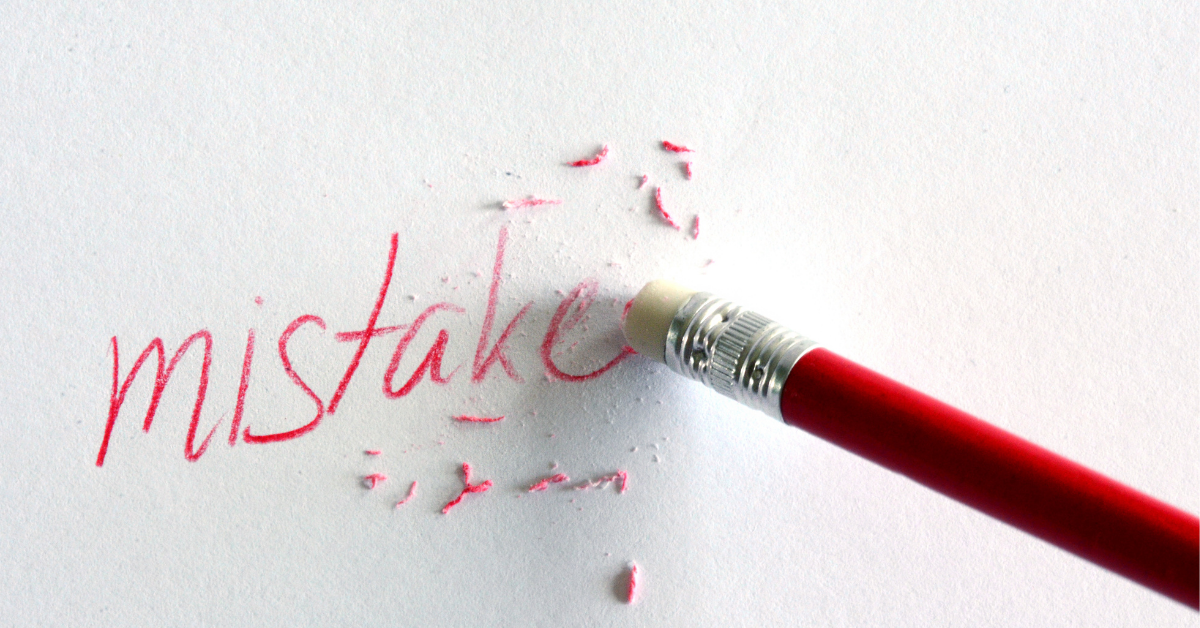How Do You View Your Mistakes or Failures?

Do you take them personally and conclude you are not as good as you thought you were? Do you beat yourself up and languish in pain and misery over them? Or even worse, do you use them as reasons to give up or change your goal or profession? Do you fear them so much that they end up becoming self-fulfilling prophecies? All of the above are common reactions to mistakes and/or failing that many people occasionally or regularly make.
As common as the above reactions are, they do not come naturally to us, but rather are learned in our environment. Very early on in life almost all of us begin to dislike making mistakes and failing. Thank goodness that we are not born that way, or it is likely that none of us ever would have learned to walk or talk. Can you imagine babies trying to walk and each time they fail berating themselves about what a screw-up they are? Or imagine if they attempt to talk and gobble-de-gook comes out and they conclude they are not good at talking and give up to focus their energy on drooling−which they are already pretty good at doing.
One of the key differences I have noticed in the higher performing people I work with is the way in which they view their mistakes and failures. First, they tend to be much more understanding of them in the sense that they know they are going to happen. Viewing mistakes and failures as inevitable turns them into part of the process of getting better versus the more common belief that they are a threat to their own value or competence.
Secondly, they have an understanding that if they want to get better they have to constantly be attempting things that are currently out of their reach. No one ever learned to ride a bicycle by staying on a tricycle. In other words, no progress is made without risks. They understand the more things they attempt, the more things they learn to do and the more skilled they will become.
The best of the best that I have worked with are able to completely distance their ego from their mistakes. Failure and mistakes are looked upon as necessary annoyances that will enable them to reach their goals faster. When people ask me how to reach their goal(s) faster, my standard reply is that it’s simple, just learn to fail successfully faster and more often.
The great basketball coach John Wooden once told me that most people think the team that makes the fewest mistakes will win, but he has found the opposite to be true. When teams are not making mistakes, they are usually playing it safe and not striving for greatness.
Wouldn’t it be great if everyone looked at their mistakes and failures simply as gifts of learning new ways to do things? The truth is, nothing is stopping any of us from doing just that. Like anything, with deliberate practice this will become a habit, and there’s a high likelihood that if you adopt this attitude it will enhance your happiness and success.
You can follow Sam on Twitter @SuperTaoInc

